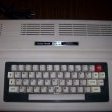-
Posts
533 -
Joined
-
Last visited
Reputation Activity
-
 @lex got a reaction from desperex in Camera(s) with Rock Pi 4 C
@lex got a reaction from desperex in Camera(s) with Rock Pi 4 C
In order to use the imx219 sensor (or any other sensor) in mainline kernel 5.x you need to tell the sensor which format and size the sensor must deliver the frames using v4l2-ctl prior to grabbing the frames.
Something like:
v4l2-ctl --set-subdev-fmt pad=0,width=1280,height=960,code=0x3001 -d /dev/v4l-subdev1
v4l2-ctl --set-subdev-fmt pad=0,width=1280,height=960,code=0x3001 -d /dev/v4l-subdev0
v4l2-ctl --set-subdev-fmt pad=2,width=800,height=600,code=0x2008 -d /dev/v4l-subdev0
Collabora has a complete setup and a patched libcamera where you can pull some images from the sensor in mainline 5.x.
For this, you need an updated rkisp driver and imx219 device node in dts (if you don't have it yet!) and fresh compiled v4l2-ctl.
You can refer to:
https://gitlab.collabora.com/koike/linux/-/commit/7842ca07b75828785ffcd217362a82eaa9cc1e21
You can also refer to the work done here for further information:
https://github.com/initBasti/NanoPC-T4_armbian_configuration#testing-the-camera-
-
 @lex got a reaction from sfx2000 in Monitoring your system health with HTOP (big.LITTLE)
@lex got a reaction from sfx2000 in Monitoring your system health with HTOP (big.LITTLE)
Just In case anyone is interested I have pushed HTOP 2.2.1 to github, so it is possible to monitor big.LITTLE cores in real-time.
You can view the big.LITTLE in action, Vcore, Cpu thermal throttling and Cpu frequency for each big or LITTLE core.
HTOP is a nice console graphical tool for system-monitor, process-viewer and process-manager.
DEB package and source code in case you want to extend or fix things.
Be aware the process list and task can be very intrusive if you want to monitor many things at once.
It has been tested on NanoPi M4 (thanks to FriendlyElec for the samples) but should work on any SBC just adjust the Vcore path for different kernel version.
https://github.com/avafinger/htop-2.1.1_enhanced-version
-
 @lex got a reaction from guidol in HTOP not showing CPU anymore
@lex got a reaction from guidol in HTOP not showing CPU anymore
And the nice thing, you can have Htop in a Browser...
-
 @lex got a reaction from TRS-80 in HTOP not showing CPU anymore
@lex got a reaction from TRS-80 in HTOP not showing CPU anymore
This is a classical memory corruption.
Htop has possibly crashed. During a crash Htop emits a backtrace with some info. If you have the backtrace info, please post here with your Htop version.
You can also try a few things:
* Remove every meter, F2 and delete all the meters, exit. Start again and add one cpu bar. If it is Ok then proceed with the rest.
* If you have some skills build Htop with debug info, the backtrace will show the function previous to the free() memory.
-
 @lex got a reaction from gounthar in Nanopi neo air ffmpeg with Cedrus H264
@lex got a reaction from gounthar in Nanopi neo air ffmpeg with Cedrus H264
Encoding using cedrus264 was for legacy kernel.
I think Uboborov has done some work with mainline kernel for encoding with cedrus. Search the forum for "encoding" or uboborov
-
 @lex got a reaction from guidol in Nanopi R2S overheating and throttling
@lex got a reaction from guidol in Nanopi R2S overheating and throttling
Wrong CPU_GOVERNOR and no way to dissipate the heat from inside the enclosure leads to overheating.
Some very simple benchmarks on recent kernel:
https://github.com/avafinger/nanopi-r2s-ubuntu-server-minimal-image
-
 @lex got a reaction from rreignier in OV5640 device tree overlay for OrangePi One H3
@lex got a reaction from rreignier in OV5640 device tree overlay for OrangePi One H3
OV5640 is ready and works in mainline kernel.
/dev/video0 will be created if the driver can find the sensor using the i2c line (generally speaking).
You can check the schematic of your board if the sensor is attached to i2c. Compare it to NanoPi Neo Air schematic and you will see the nuances.
-
 @lex got a reaction from TRS-80 in USB cameras with Nanopi m4 using motion package
@lex got a reaction from TRS-80 in USB cameras with Nanopi m4 using motion package
Maybe this can help: https://github.com/aguinet/usbtop
-
 @lex got a reaction from lanefu in Enable OV5640 on NanoPi A64
@lex got a reaction from lanefu in Enable OV5640 on NanoPi A64
This weekend I was revising and testing the OV5640 for some A64 boards.
To enable the Camera (OV5640) on NanoPi A64 for the mainline kernel you have to update the following:
* DT
* GPIO-I2C
Here is the excerpt :
Kernel config:
CONFIG_I2C_GPIO=m
CONFIG_VIDEO_OV5640=m
CONFIG_VIDEO_SUN6I_CSI=m
-
 @lex got a reaction from NicoD in RK3399 Game Playing, What games work, Assaultcube, Torc etc
@lex got a reaction from NicoD in RK3399 Game Playing, What games work, Assaultcube, Torc etc
That's the reason. It updates to new libEGL and breaks the symlink to libmali. If for some reason the new lib is installed you have to manually re-create the symlinks, or just don't update.
-
 @lex reacted to guidol in [Experiment] armbian on NanoPi A64
@lex reacted to guidol in [Experiment] armbian on NanoPi A64
Hah I did found something....after @kamma did tell it would be OK with the PineA64-deconfig....
It seems that the deactivated usb@1c19000 allwinner,sun8i-a33-musb has to be activated as status = "okay";
and in dr_mode = "host"; like on the pine64
I changed the sun50i-a64-nanopi-a64.dts and compiled it back to .dtb and did put it in /boot/dtb/allwinner and reboot.
see config here in hidden spoiler:
Now the NanoPi A64 does recognize the USB-Stick at the upper port.
[ 1.856580] sun4i-usb-phy 1c19400.phy: failed to get clock usb0_phy
[ 2.129298] usb_phy_generic usb_phy_generic.0.auto: usb_phy_generic.0.auto supply vcc not found, using dummy regulator
[ 2.129351] usb_phy_generic usb_phy_generic.0.auto: Linked as a consumer to regulator.0
[ 2.129630] musb-hdrc musb-hdrc.1.auto: MUSB HDRC host driver
[ 2.129639] musb-hdrc musb-hdrc.1.auto: new USB bus registered, assigned bus number 5
[ 2.129813] usb usb5: New USB device found, idVendor=1d6b, idProduct=0002, bcdDevice= 5.00
[ 2.129821] usb usb5: New USB device strings: Mfr=3, Product=2, SerialNumber=1
[ 2.129826] usb usb5: Product: MUSB HDRC host driver
[ 2.129832] usb usb5: Manufacturer: Linux 5.0.7-sunxi64 musb-hcd
[ 2.129837] usb usb5: SerialNumber: musb-hdrc.1.auto
[ 82.404779] usb 3-1: new high-speed USB device number 2 using ehci-platform
[ 82.562191] usb 3-1: New USB device found, idVendor=0930, idProduct=6545, bcdDevice= 1.10
[ 82.562202] usb 3-1: New USB device strings: Mfr=1, Product=2, SerialNumber=3
[ 82.562206] usb 3-1: Product: TransMemory-Mx
[ 82.562211] usb 3-1: Manufacturer: TOSHIBA
[ 82.562215] usb 3-1: SerialNumber: C03FD55EAF4CEFC050138484
[ 82.563032] usb-storage 3-1:1.0: USB Mass Storage device detected
[ 82.570592] scsi host0: usb-storage 3-1:1.0
[ 89.518200] usb 3-1: USB disconnect, device number 2
[ 92.721680] usb 1-1: new high-speed USB device number 3 using ehci-platform
[ 92.879376] usb 1-1: New USB device found, idVendor=0930, idProduct=6545, bcdDevice= 1.10
[ 92.879387] usb 1-1: New USB device strings: Mfr=1, Product=2, SerialNumber=3
[ 92.879391] usb 1-1: Product: TransMemory-Mx
[ 92.879395] usb 1-1: Manufacturer: TOSHIBA
[ 92.879400] usb 1-1: SerialNumber: C03FD55EAF4CEFC050138484
[ 92.880125] usb-storage 1-1:1.0: USB Mass Storage device detected
[ 92.883967] scsi host0: usb-storage 1-1:1.0
[ 1054.498911] usb 1-1: USB disconnect, device number 3
-
 @lex got a reaction from devman in Monitoring your system health with HTOP (big.LITTLE)
@lex got a reaction from devman in Monitoring your system health with HTOP (big.LITTLE)
Just In case anyone is interested I have pushed HTOP 2.2.1 to github, so it is possible to monitor big.LITTLE cores in real-time.
You can view the big.LITTLE in action, Vcore, Cpu thermal throttling and Cpu frequency for each big or LITTLE core.
HTOP is a nice console graphical tool for system-monitor, process-viewer and process-manager.
DEB package and source code in case you want to extend or fix things.
Be aware the process list and task can be very intrusive if you want to monitor many things at once.
It has been tested on NanoPi M4 (thanks to FriendlyElec for the samples) but should work on any SBC just adjust the Vcore path for different kernel version.
https://github.com/avafinger/htop-2.1.1_enhanced-version
-
 @lex reacted to jernej in Orangepi 3 h6 allwiner chip
@lex reacted to jernej in Orangepi 3 h6 allwiner chip
DMA channels for SPI0 are 22 and 22 (Rx, Tx).
BTW, I already sent patches, but I still want to know if it will work for you once you fix DT issues.
-
 @lex got a reaction from NicoD in Orangepi 3 h6 allwiner chip
@lex got a reaction from NicoD in Orangepi 3 h6 allwiner chip
I have watched this thread and decided to check the status of the mainline kernel 5.0 for the H6 with the @Icenowy 's work on top of it.
I can say it works really nice (tested on Orange Pi 3 H6):
* HDMI
* DVFS
* Gbps / ethernet
I have prepared a blindly DT that should work on Opi 3 H6: https://github.com/avafinger/orangepi-h6-ubuntu-base-minimal/tree/master/dts
@Igor , Basically fetch the mainline kernel 5, apply your patch set on top and add/modify my DT.
I have tried to add i2c and spi but it did not work as i expected.
I had something like this:
For the i2c
i2c0: i2c@5002000 { compatible = "allwinner,sun6i-a31-i2c"; reg = <0x05002000 0x400>; interrupts = <GIC_SPI 4 IRQ_TYPE_LEVEL_HIGH>; clocks = <&ccu CLK_BUS_I2C0>; resets = <&ccu RST_BUS_I2C0>; status = "disabled"; #address-cells = <1>; #size-cells = <0>; }; i2c1: i2c@5002400 { compatible = "allwinner,sun6i-a31-i2c"; reg = <0x05002400 0x400>; interrupts = <GIC_SPI 5 IRQ_TYPE_LEVEL_HIGH>; clocks = <&ccu CLK_BUS_I2C1>; resets = <&ccu RST_BUS_I2C1>; status = "disabled"; #address-cells = <1>; #size-cells = <0>; }; i2c0_pins: i2c0_pins { pins = "PH5", "PH6"; function = "i2c0"; }; i2c1_pins: i2c1_pins { pins = "PD25", "PD26"; function = "i2c1"; }; Default i2c in use (PMIC and possibly HDMI):
ls /dev/i2c-* /dev/i2c-0 /dev/i2c-1 i2cdetect -y 0 0 1 2 3 4 5 6 7 8 9 a b c d e f 00: -- -- -- -- -- -- -- -- -- -- -- -- -- 10: -- -- -- -- -- -- -- -- -- -- -- -- -- -- -- -- 20: -- -- -- -- -- -- -- -- -- -- -- -- -- -- -- -- 30: -- -- -- -- -- -- UU -- -- -- -- -- -- -- -- -- 40: -- -- -- -- -- -- -- -- -- -- -- -- -- -- -- -- 50: -- -- -- -- -- -- -- -- -- -- -- -- -- -- -- -- 60: -- -- -- -- -- -- -- -- -- -- -- -- -- -- -- -- 70: -- -- -- -- -- -- -- -- i2cdetect -y 1 0 1 2 3 4 5 6 7 8 9 a b c d e f 00: -- -- -- -- -- -- -- -- -- -- -- -- -- 10: -- -- -- -- -- -- -- -- -- -- -- -- -- -- -- -- 20: -- -- -- -- -- -- -- -- -- -- -- -- -- -- -- -- 30: 30 -- -- -- -- -- -- -- -- -- -- -- -- -- -- -- 40: -- -- -- -- -- -- -- -- -- -- -- -- -- -- -- -- 50: 50 51 52 53 54 55 56 57 -- -- -- -- -- -- -- -- 60: -- -- -- -- -- -- -- -- -- -- -- -- -- -- -- -- 70: -- -- -- -- -- -- -- --
For the SPI0:
spi0: spi@5010000 { compatible = "allwinner,sun8i-h3-spi"; reg = <0x05010000 0x1000>; interrupts = <GIC_SPI 10 IRQ_TYPE_LEVEL_HIGH>; clocks = <&ccu CLK_BUS_SPI0>, <&ccu CLK_SPI0>; clock-names = "ahb", "mod"; dmas = <&dma 23>, <&dma 23>; dma-names = "rx", "tx"; pinctrl-names = "default"; pinctrl-0 = <&spi0_pins>; resets = <&ccu RST_BUS_SPI0>; status = "disabled"; num-cs = <1>; #address-cells = <1>; #size-cells = <0>; }; spi0_pins: spi0 { pins = "PC0", "PC2", "PC3", "PC5"; function = "spi0"; }; One thing i noticed was some instability on SD card but resorting to 4.19-rc6 clk values fixed it.
Regarding the reboot command, i applied the latest ATF power fix (as suggested by @jernej but reboot works exactly as shutdown -h now
-
 @lex got a reaction from Werner in Orangepi 3 h6 allwiner chip
@lex got a reaction from Werner in Orangepi 3 h6 allwiner chip
I have watched this thread and decided to check the status of the mainline kernel 5.0 for the H6 with the @Icenowy 's work on top of it.
I can say it works really nice (tested on Orange Pi 3 H6):
* HDMI
* DVFS
* Gbps / ethernet
I have prepared a blindly DT that should work on Opi 3 H6: https://github.com/avafinger/orangepi-h6-ubuntu-base-minimal/tree/master/dts
@Igor , Basically fetch the mainline kernel 5, apply your patch set on top and add/modify my DT.
I have tried to add i2c and spi but it did not work as i expected.
I had something like this:
For the i2c
i2c0: i2c@5002000 { compatible = "allwinner,sun6i-a31-i2c"; reg = <0x05002000 0x400>; interrupts = <GIC_SPI 4 IRQ_TYPE_LEVEL_HIGH>; clocks = <&ccu CLK_BUS_I2C0>; resets = <&ccu RST_BUS_I2C0>; status = "disabled"; #address-cells = <1>; #size-cells = <0>; }; i2c1: i2c@5002400 { compatible = "allwinner,sun6i-a31-i2c"; reg = <0x05002400 0x400>; interrupts = <GIC_SPI 5 IRQ_TYPE_LEVEL_HIGH>; clocks = <&ccu CLK_BUS_I2C1>; resets = <&ccu RST_BUS_I2C1>; status = "disabled"; #address-cells = <1>; #size-cells = <0>; }; i2c0_pins: i2c0_pins { pins = "PH5", "PH6"; function = "i2c0"; }; i2c1_pins: i2c1_pins { pins = "PD25", "PD26"; function = "i2c1"; }; Default i2c in use (PMIC and possibly HDMI):
ls /dev/i2c-* /dev/i2c-0 /dev/i2c-1 i2cdetect -y 0 0 1 2 3 4 5 6 7 8 9 a b c d e f 00: -- -- -- -- -- -- -- -- -- -- -- -- -- 10: -- -- -- -- -- -- -- -- -- -- -- -- -- -- -- -- 20: -- -- -- -- -- -- -- -- -- -- -- -- -- -- -- -- 30: -- -- -- -- -- -- UU -- -- -- -- -- -- -- -- -- 40: -- -- -- -- -- -- -- -- -- -- -- -- -- -- -- -- 50: -- -- -- -- -- -- -- -- -- -- -- -- -- -- -- -- 60: -- -- -- -- -- -- -- -- -- -- -- -- -- -- -- -- 70: -- -- -- -- -- -- -- -- i2cdetect -y 1 0 1 2 3 4 5 6 7 8 9 a b c d e f 00: -- -- -- -- -- -- -- -- -- -- -- -- -- 10: -- -- -- -- -- -- -- -- -- -- -- -- -- -- -- -- 20: -- -- -- -- -- -- -- -- -- -- -- -- -- -- -- -- 30: 30 -- -- -- -- -- -- -- -- -- -- -- -- -- -- -- 40: -- -- -- -- -- -- -- -- -- -- -- -- -- -- -- -- 50: 50 51 52 53 54 55 56 57 -- -- -- -- -- -- -- -- 60: -- -- -- -- -- -- -- -- -- -- -- -- -- -- -- -- 70: -- -- -- -- -- -- -- --
For the SPI0:
spi0: spi@5010000 { compatible = "allwinner,sun8i-h3-spi"; reg = <0x05010000 0x1000>; interrupts = <GIC_SPI 10 IRQ_TYPE_LEVEL_HIGH>; clocks = <&ccu CLK_BUS_SPI0>, <&ccu CLK_SPI0>; clock-names = "ahb", "mod"; dmas = <&dma 23>, <&dma 23>; dma-names = "rx", "tx"; pinctrl-names = "default"; pinctrl-0 = <&spi0_pins>; resets = <&ccu RST_BUS_SPI0>; status = "disabled"; num-cs = <1>; #address-cells = <1>; #size-cells = <0>; }; spi0_pins: spi0 { pins = "PC0", "PC2", "PC3", "PC5"; function = "spi0"; }; One thing i noticed was some instability on SD card but resorting to 4.19-rc6 clk values fixed it.
Regarding the reboot command, i applied the latest ATF power fix (as suggested by @jernej but reboot works exactly as shutdown -h now
-
 @lex got a reaction from guidol in Orangepi 3 h6 allwiner chip
@lex got a reaction from guidol in Orangepi 3 h6 allwiner chip
I have watched this thread and decided to check the status of the mainline kernel 5.0 for the H6 with the @Icenowy 's work on top of it.
I can say it works really nice (tested on Orange Pi 3 H6):
* HDMI
* DVFS
* Gbps / ethernet
I have prepared a blindly DT that should work on Opi 3 H6: https://github.com/avafinger/orangepi-h6-ubuntu-base-minimal/tree/master/dts
@Igor , Basically fetch the mainline kernel 5, apply your patch set on top and add/modify my DT.
I have tried to add i2c and spi but it did not work as i expected.
I had something like this:
For the i2c
i2c0: i2c@5002000 { compatible = "allwinner,sun6i-a31-i2c"; reg = <0x05002000 0x400>; interrupts = <GIC_SPI 4 IRQ_TYPE_LEVEL_HIGH>; clocks = <&ccu CLK_BUS_I2C0>; resets = <&ccu RST_BUS_I2C0>; status = "disabled"; #address-cells = <1>; #size-cells = <0>; }; i2c1: i2c@5002400 { compatible = "allwinner,sun6i-a31-i2c"; reg = <0x05002400 0x400>; interrupts = <GIC_SPI 5 IRQ_TYPE_LEVEL_HIGH>; clocks = <&ccu CLK_BUS_I2C1>; resets = <&ccu RST_BUS_I2C1>; status = "disabled"; #address-cells = <1>; #size-cells = <0>; }; i2c0_pins: i2c0_pins { pins = "PH5", "PH6"; function = "i2c0"; }; i2c1_pins: i2c1_pins { pins = "PD25", "PD26"; function = "i2c1"; }; Default i2c in use (PMIC and possibly HDMI):
ls /dev/i2c-* /dev/i2c-0 /dev/i2c-1 i2cdetect -y 0 0 1 2 3 4 5 6 7 8 9 a b c d e f 00: -- -- -- -- -- -- -- -- -- -- -- -- -- 10: -- -- -- -- -- -- -- -- -- -- -- -- -- -- -- -- 20: -- -- -- -- -- -- -- -- -- -- -- -- -- -- -- -- 30: -- -- -- -- -- -- UU -- -- -- -- -- -- -- -- -- 40: -- -- -- -- -- -- -- -- -- -- -- -- -- -- -- -- 50: -- -- -- -- -- -- -- -- -- -- -- -- -- -- -- -- 60: -- -- -- -- -- -- -- -- -- -- -- -- -- -- -- -- 70: -- -- -- -- -- -- -- -- i2cdetect -y 1 0 1 2 3 4 5 6 7 8 9 a b c d e f 00: -- -- -- -- -- -- -- -- -- -- -- -- -- 10: -- -- -- -- -- -- -- -- -- -- -- -- -- -- -- -- 20: -- -- -- -- -- -- -- -- -- -- -- -- -- -- -- -- 30: 30 -- -- -- -- -- -- -- -- -- -- -- -- -- -- -- 40: -- -- -- -- -- -- -- -- -- -- -- -- -- -- -- -- 50: 50 51 52 53 54 55 56 57 -- -- -- -- -- -- -- -- 60: -- -- -- -- -- -- -- -- -- -- -- -- -- -- -- -- 70: -- -- -- -- -- -- -- --
For the SPI0:
spi0: spi@5010000 { compatible = "allwinner,sun8i-h3-spi"; reg = <0x05010000 0x1000>; interrupts = <GIC_SPI 10 IRQ_TYPE_LEVEL_HIGH>; clocks = <&ccu CLK_BUS_SPI0>, <&ccu CLK_SPI0>; clock-names = "ahb", "mod"; dmas = <&dma 23>, <&dma 23>; dma-names = "rx", "tx"; pinctrl-names = "default"; pinctrl-0 = <&spi0_pins>; resets = <&ccu RST_BUS_SPI0>; status = "disabled"; num-cs = <1>; #address-cells = <1>; #size-cells = <0>; }; spi0_pins: spi0 { pins = "PC0", "PC2", "PC3", "PC5"; function = "spi0"; }; One thing i noticed was some instability on SD card but resorting to 4.19-rc6 clk values fixed it.
Regarding the reboot command, i applied the latest ATF power fix (as suggested by @jernej but reboot works exactly as shutdown -h now
-
 @lex got a reaction from pazzoide in htop has strange "layout"
@lex got a reaction from pazzoide in htop has strange "layout"
Type in the shell:
printf "This is ASCII representation:\n|\n\`\n\`-\nThis is UTF-8 representation:\n\xe2\x94\x82\n\xe2\x94\x9c\n\xe2\x94\x94\xe2\x94\x80\n"
You should see this:
This is ASCII representation:
|
`
`-
This is UTF-8 representation:
│
├
└─
If you don't see the above representation, you should set UTF-8 for your language in Terminal.
-
 @lex got a reaction from pazzoide in htop has strange "layout"
@lex got a reaction from pazzoide in htop has strange "layout"
htop was built without support for ncursessw (shared libraries for terminal handling (wide character support)).
I realized that is not the problem, i found out if you run htop from ssh terminal and from a console terminal you get ASCII on one and UTF-8 on the other (or vice-versa) and both have UTF-8 support.
Can you please check if you have the same behavior?
-
 @lex got a reaction from guidol in htop has strange "layout"
@lex got a reaction from guidol in htop has strange "layout"
Type in the shell:
printf "This is ASCII representation:\n|\n\`\n\`-\nThis is UTF-8 representation:\n\xe2\x94\x82\n\xe2\x94\x9c\n\xe2\x94\x94\xe2\x94\x80\n"
You should see this:
This is ASCII representation:
|
`
`-
This is UTF-8 representation:
│
├
└─
If you don't see the above representation, you should set UTF-8 for your language in Terminal.
-
 @lex got a reaction from guidol in [Experiment] armbian on NanoPi A64
@lex got a reaction from guidol in [Experiment] armbian on NanoPi A64
My last update on this issue in case someone is working to get sound on A64 (>= 4.20).
I tried every patch out there, triple checked the code , same situation, no sound.
I must have missed something or overlooked something.
I finally tried Vasily's kernel and for my surprise no sound. Last hope, i tried Vasily ARCH img, no luck, no sound even on Pine64.
Maybe it works on Pinebook,....
-
 @lex reacted to zador.blood.stained in NanoPC T4
@lex reacted to zador.blood.stained in NanoPC T4
Looks like we got an upstream DT for the T4: https://git.kernel.org/pub/scm/linux/kernel/git/next/linux-next.git/commit/arch/arm64/boot/dts/rockchip?id=e7a095908227fb3ccc86d001d9e13c9ae2bef8e6
-
 @lex got a reaction from jock in Monitoring your system health with HTOP (big.LITTLE)
@lex got a reaction from jock in Monitoring your system health with HTOP (big.LITTLE)
Just In case anyone is interested I have pushed HTOP 2.2.1 to github, so it is possible to monitor big.LITTLE cores in real-time.
You can view the big.LITTLE in action, Vcore, Cpu thermal throttling and Cpu frequency for each big or LITTLE core.
HTOP is a nice console graphical tool for system-monitor, process-viewer and process-manager.
DEB package and source code in case you want to extend or fix things.
Be aware the process list and task can be very intrusive if you want to monitor many things at once.
It has been tested on NanoPi M4 (thanks to FriendlyElec for the samples) but should work on any SBC just adjust the Vcore path for different kernel version.
https://github.com/avafinger/htop-2.1.1_enhanced-version
-
 @lex got a reaction from Tido in Monitoring your system health with HTOP (big.LITTLE)
@lex got a reaction from Tido in Monitoring your system health with HTOP (big.LITTLE)
Just In case anyone is interested I have pushed HTOP 2.2.1 to github, so it is possible to monitor big.LITTLE cores in real-time.
You can view the big.LITTLE in action, Vcore, Cpu thermal throttling and Cpu frequency for each big or LITTLE core.
HTOP is a nice console graphical tool for system-monitor, process-viewer and process-manager.
DEB package and source code in case you want to extend or fix things.
Be aware the process list and task can be very intrusive if you want to monitor many things at once.
It has been tested on NanoPi M4 (thanks to FriendlyElec for the samples) but should work on any SBC just adjust the Vcore path for different kernel version.
https://github.com/avafinger/htop-2.1.1_enhanced-version
-
 @lex got a reaction from Werner in Orange pi one plus - 1800 MHz
@lex got a reaction from Werner in Orange pi one plus - 1800 MHz
Ok then, here is my take on the matter.
You have to build the new image or wait for @Igor
* Apply the patch described on the thread
* Change the regulator like this:
reg_dcdca: dcdca { regulator-always-on; regulator-min-microvolt = <810000>; regulator-max-microvolt = <1160000>; regulator-name = "vdd-cpu"; };
* rebuild Image
There you have it:
7z b 7-Zip [64] 16.02 : Copyright (c) 1999-2016 Igor Pavlov : 2016-05-21 p7zip Version 16.02 (locale=C.UTF-8,Utf16=on,HugeFiles=on,64 bits,4 CPUs LE) LE CPU Freq: 1717 1796 1796 1796 1796 1796 1796 1796 1796 RAM size: 964 MB, # CPU hardware threads: 4 RAM usage: 882 MB, # Benchmark threads: 4 Compressing | Decompressing Dict Speed Usage R/U Rating | Speed Usage R/U Rating KiB/s % MIPS MIPS | KiB/s % MIPS MIPS 22: 2679 333 783 2607 | 70708 388 1554 6033 23: 2615 333 800 2665 | 66860 388 1489 5785 24: 2545 333 821 2736 | 63737 390 1436 5595 25: 2420 329 839 2763 | 57802 388 1324 5144 ---------------------------------- | ------------------------------ Avr: 332 811 2693 | 389 1451 5639 Tot: 360 1131 4166
-
 @lex got a reaction from Werner in Orange pi one plus - 1800 MHz
@lex got a reaction from Werner in Orange pi one plus - 1800 MHz
You might ask @tkaiser, he did that on PineH64 and that applies to Opi One Plus.









